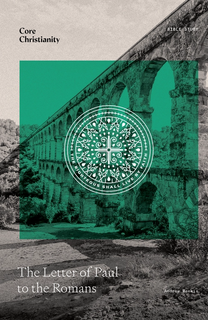
The very first sentence of Genesis reveals the main character of the entire Bible, God: “In the beginning, God created the heavens and the earth” (Gen. 1:1). From start to finish, every book of the Bible, every chapter and verse, reveals who God is and what God does. This is why one of the most helpful questions we can ask to understand any passage of Scripture is also one of the simplest: What does this text teach us about God? The Bible is the self-revelation of the creator to his creation. This means that to read the Bible well, we must always remember that it is about God first and foremost. He is the main character; we are not. If we make ourselves the main character of the Bible, then we will miss the message God wants us to understand.
Here’s an example to help make this point. Recall the story of David and Goliath (if you don’t know the story or need a refresher, take a few minutes to read 1 Samuel 17). If we were to make ourselves the main character of this story, then we would probably interpret it something like this. First off, we would likely identify ourselves with David (of course, we aren’t the evil giant!). Like David, we face “giants” in life. Most of us aren’t regularly attacked by nine-foot-tall men, so to make ourselves the main character in the story we have to get a little creative and turn Goliath into an allegorical symbol for something else. The “giants” in our lives might be any sort of hardship or trial. Everybody has something difficult in their life they can plug in the story as their personal “giant.” The message we take away from reading the story of David and Goliath in this manner is essentially that we must overcome our problems by, symbolically, taking up our sling and stones. Perhaps it is the stone of faith: we just need to believe harder or live holier, and then our hardships and trials will disappear.
This way of reading the Bible makes it easy to relate the story of David and Goliath to our lives and what we are going through. The problem, however, is that it completely and totally misses the point! We are not the main character, and the Bible is not all about us. God is the main character, and the story of David and Goliath is about him! If instead we ask what this story teaches us about God, then we the message is quite different: In a nutshell, God is mighty and saves his people. All of the Israelites lived in terror of Goliath, but God sent a humble shepherd boy with a mere sling to defeat the enemy of his people. This teaches us something of God’s character, and it ultimately points us to the way he will save his people eternally from their sins by coming in humility, not power, to suffer and die. To read the Bible rightly, we must begin with the understanding that it is both from God and about God.
Footnotes
This resource is excerpted from the Core Bible Study, How to Read the Bible. You can get the full study here.









